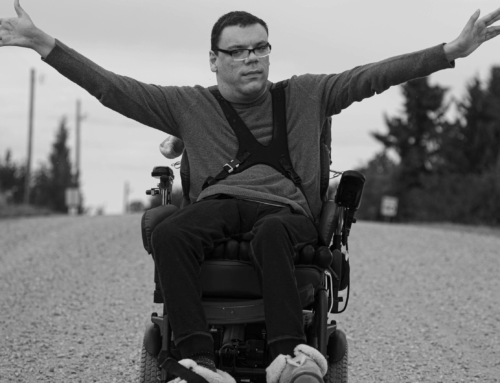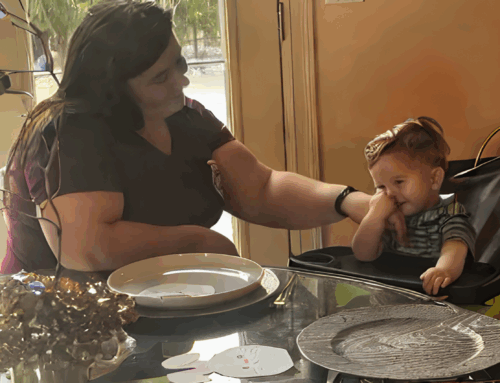Today we welcome a guest post from Steve Elshaw as he applies scripture to the role of living alongside, and caring for people with disabilities. Some of the thoughts in this blog post were inspired by the Accessibility Conversations at Fight4Freedom.
As Jesus went along, he saw a man blind from birth. His disciples asked him, “Rabbi, who sinned, this man or his parents, that he was born blind?” “Neither this man nor his parents sinned,” said Jesus, “but this happened so that the works of God might be displayed in him.”
John 9:1-3
During the time of the gospel of John, common thought was that if someone had a disability, that it was because of sin. Jesus turned this view upside down, by saying that a disability existed in someone’s life, so that God could show His power.
Two accounts in scripture that show the works of God on display for someone who experienced a disability, are the healing at the pool in John 5:1-15 and when Jesus heals a man let down through the roof of a house in Luke 5:17-26 (I mention more about the Luke 5 passage below).
I have the great privilege of journeying with people who experience disabilities and seeing the power of God in their lives.
I’ve noticed that sometimes a person can see their disability as a source of trauma and that the little voices inside them can put them down.
For people who do not experience a physical disability, there are other things that they experience that can hold them back in life.
The apostle Paul had some sort of thorn in his flesh and Jesus met him where he was weak. The way Paul responded to the thorn is described in 2 Corinthians 12:9:
But he said to me, “My grace is sufficient for you, for my power is made perfect in weakness.” Therefore I will boast all the more gladly about my weaknesses, so that Christ’s power may rest on me.
This verse can be applied today by helping someone who experiences a disability see the strength that comes with it.
Many people have an area where they have reached the end of themselves and cannot fix a problem. For people who do not experience a physical disability but that do experience some sort of “thorn in the flesh”, the thorn can be seen as a gift. Perhaps it will make a person more compassionate to others who have the same type of thorn or form of suffering.

Praise be to the God and Father of our Lord Jesus Christ, the Father of compassion and the God of all comfort, who comforts us in all our troubles, so that we can comfort those in any trouble with the comfort we ourselves receive from God.
2 Corinthians 1:3-4
One of my fears is that we are losing the ability as a society to help someone who experiences a disability or is suffering in some way, because we are afraid of doing or saying the wrong thing.
The men who were carrying a paralyzed man on a mat (in Luke 5:17-26) could not find a way to carry him into the house to lay him before Jesus, because of the crowd. So they went up on the roof and lowered him on his mat through the tiles into the middle of the crowd, right in front of Jesus. This is an example of faith in action and effort put in to help someone in need, that must have looked awkward.
This scripture can be applied in our world today, in that, if we notice someone suffering, or another person struggling with a disability, we can ask with compassion, if we can help. We can do this even if we feel awkward about it, or don’t know exactly how to ask or what to do.



